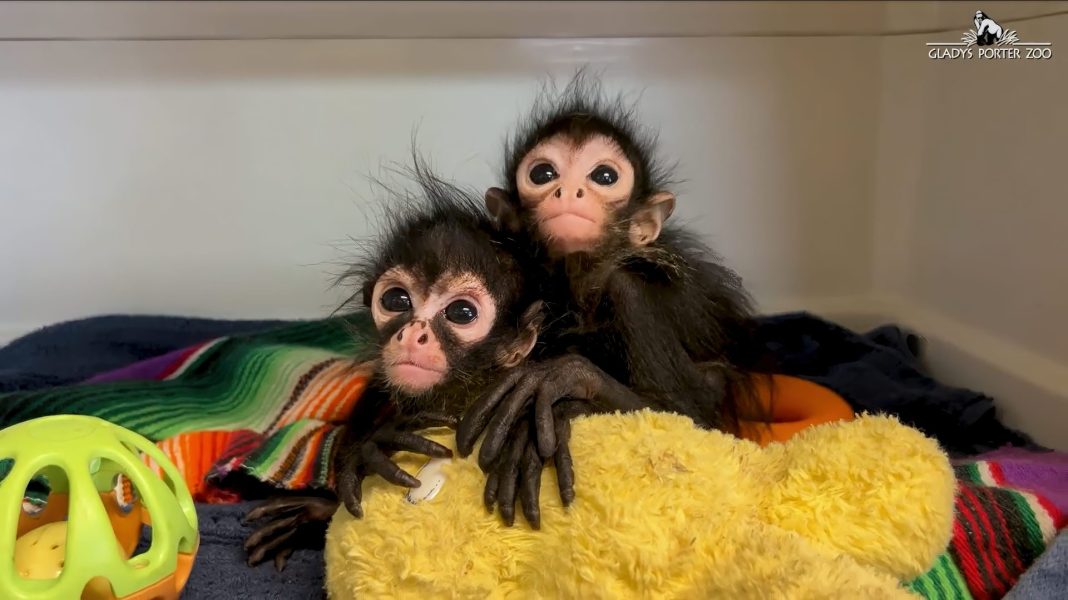|
Only have a minute? Listen instead
Getting your Trinity Audio player ready...
|
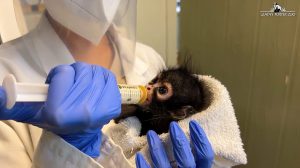
A rash of exotic animal smuggling over the last three months is impacting the Gladys Porter Zoo.
In just three months, the zoo has taken in 19 infant Mexican spider monkeys — the majority of which were seized from smugglers by federal agents at border crossings.
Now, the zoo says in a news release, that this care is seriously impacting its day-to-day activities as it cares for the infant monkeys, which are being smuggled in response to a demand for baby monkeys by the U.S. pet trade.
Dr. Pat Burchfield, the zoo’s executive director, said in the release that it’s important for the public to understand that while the animals look cute and cuddly, the consequences of acquiring these animals as pets have far-reaching negative effects.
“The babies are traumatized by the loss of their mothers. While they can be hand-raised, they can no longer be safely returned to their native habitats,” Burchfield said in the release. ”By making them household pets, people are directly contributing to the elimination of this species in the wild and the illegal black market trade of wild animals.”
The zoo wants to call attention to “the horrors” the baby monkeys face when they fall victim to the illegal wildlife trade.
“Many people do not know that the baby monkeys sold as pets must first be stolen from their mothers in the wild,” the release stated. “As one can imagine, the mothers do not willingly allow people to take their infants; they must first be killed. Only then can the babies be taken from their dead mothers.”
As long as the demand exists for these animals, these acts will continue, the zoo said.
These animals are listed as endangered by the International Union for the Conservation of Nature Red List of Threatened Species.
“Their populations are extremely fragmented in the wild due to habitat loss and they continue to decrease due to hunting for the pet trade,” the release stated.
“In addition to the Zoo’s ongoing top care for 1,500 mammals, birds, reptiles, amphibians and fish, the fragile infant monkeys have kept animal care staff busy around-the-clock,” the release stated. “After the babies are stabilized, each monkey receives a complete physical workup.”
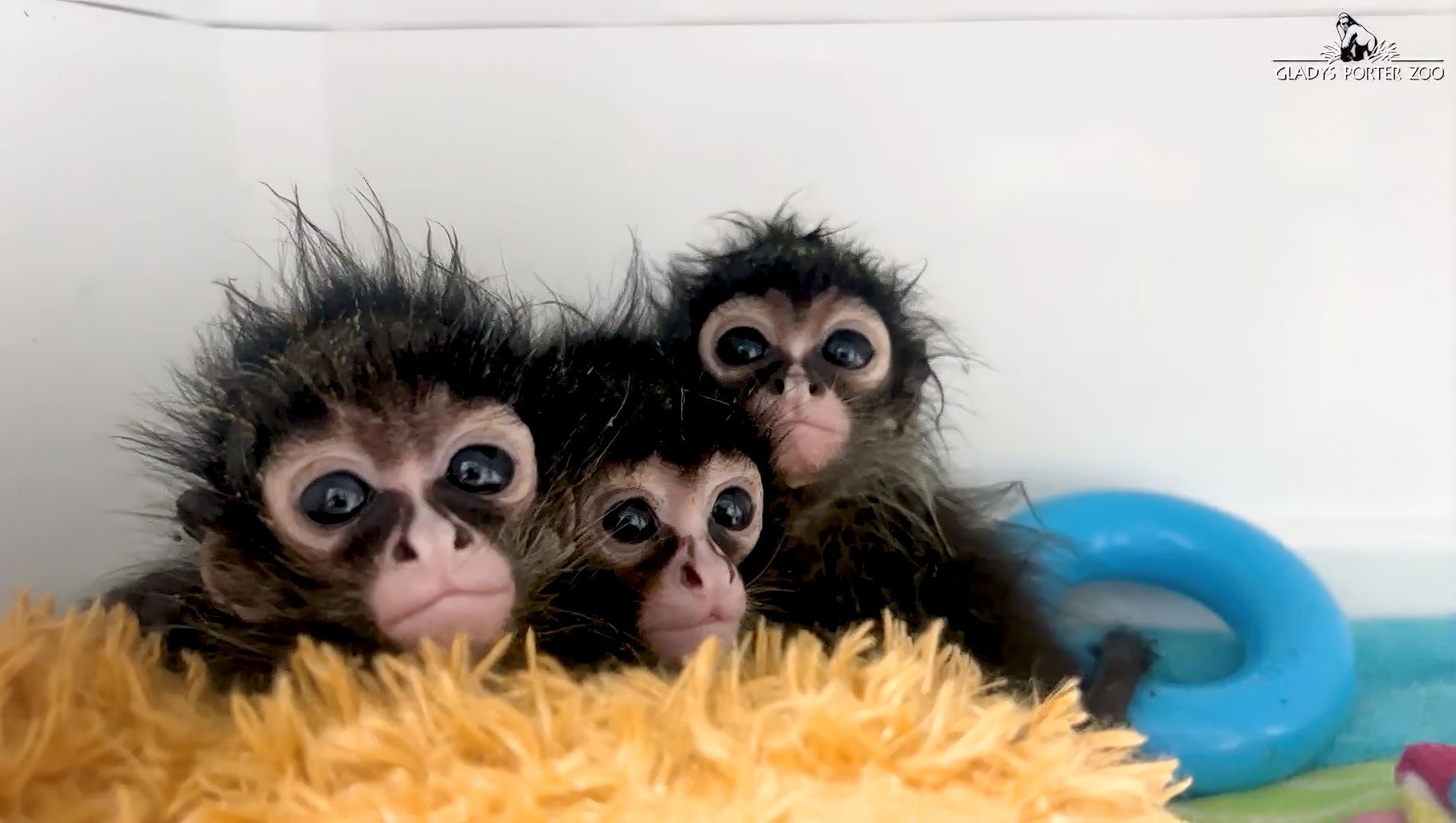
The infant monkeys are also treated for wounds, fungal and bacterial infections, lacerations, lice and other parasites. Daily care also includes being bottle-fed human infant formula, which must happen every three hours, including nightly.
Staff at the zoo are in contact with the Association of Zoos and Aquariums to find homes for the infant monkeys, but it takes time for them to be ready to travel.
“As fond as our staff has grown of them, caring for them is time-consuming and expensive,” the release stated.
This has prompted the zoo to start a GoFundMe campaign seeking donations so that the animals continue to receive quality care, so the zoo can purchase additional incubators and so it can build more outdoor enclosures for the Mexican spider monkeys until they are ready to move to a permanent home.
CASES AND CONSEQUENCES
Many people caught with Mexican spider monkeys — or other animals — earn a trip to Brownsville or McAllen courts.
Take 26-year-old Bridiana Mendoza, who U.S. Customs and Border Protection stopped on March 20 at the Veterans International Bridge in Brownsville.
During an inspection, CBP found six spider monkeys hidden inside her purse and backpack.
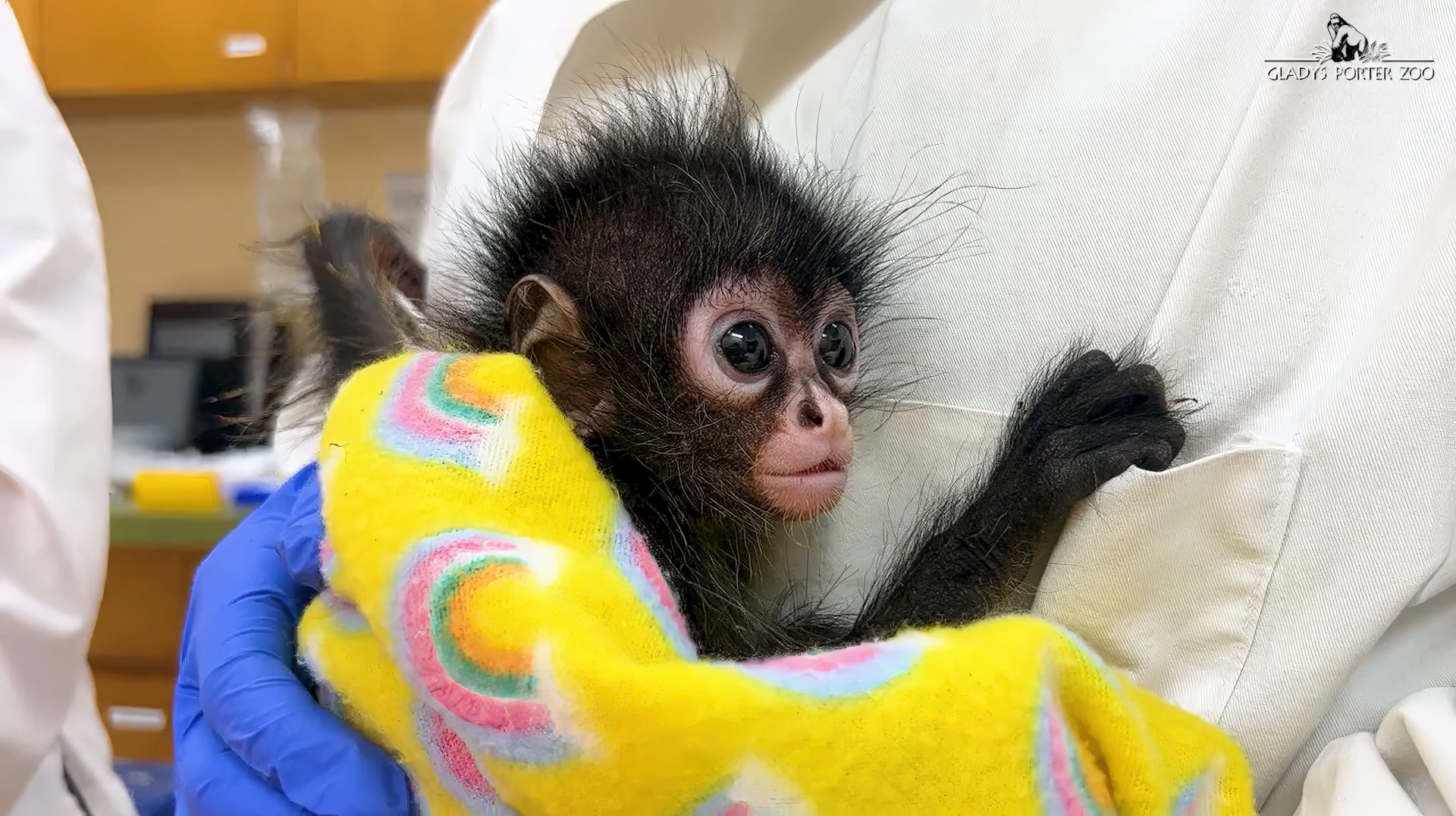
After her arrest, she told federal investigators she would be paid $700 for smuggling the animals to Houston.
She was indicted on April 16 on charges that include the smuggling of goods and Lacey Act violations, which is a law regarding the illegal sale of animals.
She has pleaded not guilty.
Then there’s 29-year-old Jesus Arguello Rubio who attempted to enter Brownsville via the B&M International Bridge on March 4.
During an inspection, CBP officers found two live Howler monkeys climbing out of the windows of the vehicle he was driving.
Like Mendoza, he was indicted on March 19 on charges of smuggling of goods and Lacey Act violations.
He has also pleaded not guilty.
While Mendoza and Arguello are in the early stages of their cases, one Rio Grande Valley couple learned their fates on April 25 for attempting to sell a jaguar cub and margay to a federal undercover agent in September 2023. A federal grand jury indicted them on Oct. 17, 2023.
Federal investigators arrested Rafael Gutierrez-Galvan and his wife Deyanira Garza during a traffic stop in Alamo.
They eventually pleaded guilty to unlawful transportation and sale of wildlife and possession of prohibited wildlife.
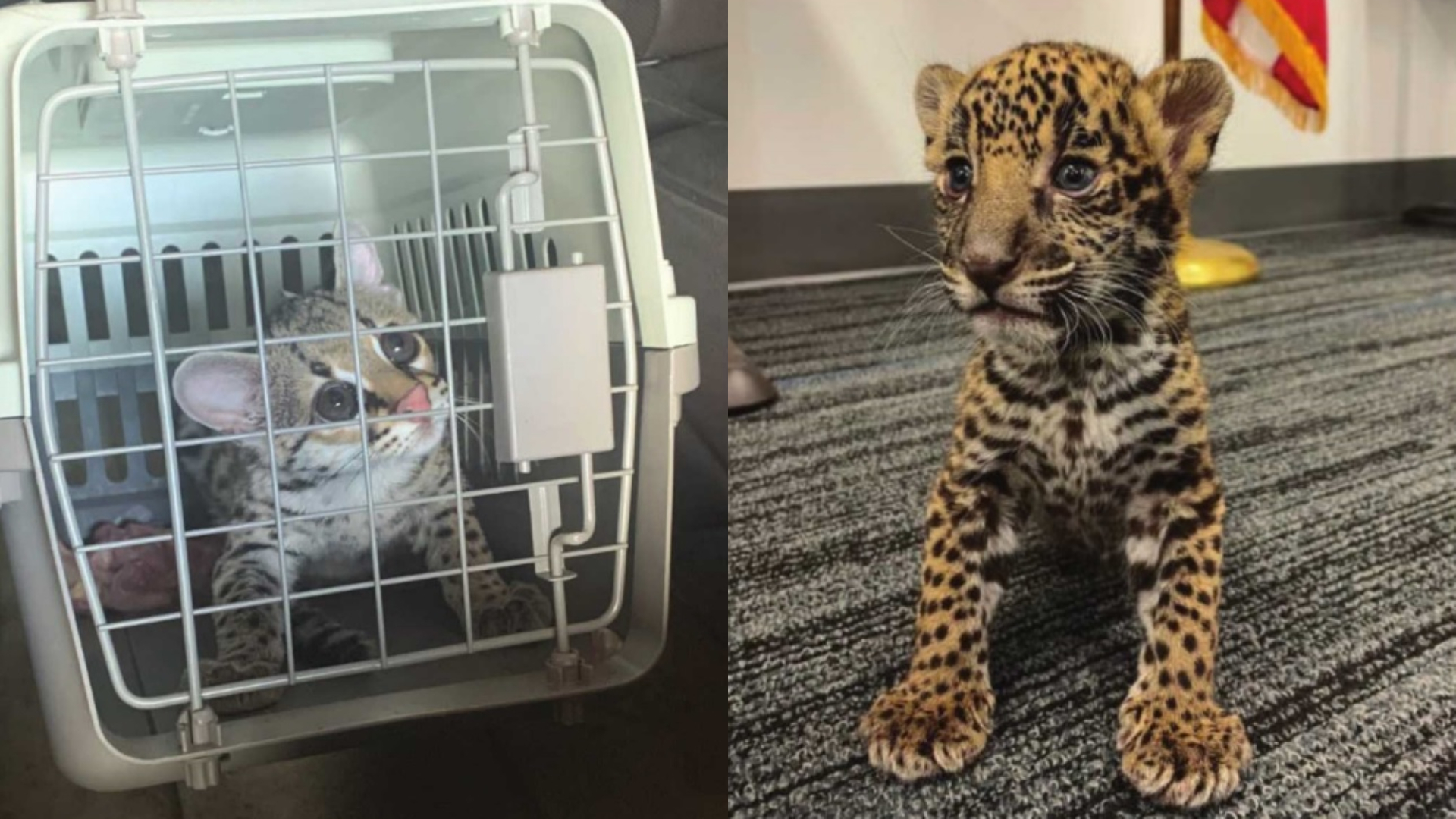
Gutierrez-Galvan was sentenced to nine months in prison while Garza was sentenced to two years of probation and 50 hours of community service.
Then there are smugglers who just don’t learn.
Take 22-year-old Katy resident Savannah Nicole Valdez.
She was arrested in 2022 after she attempted to smuggle a spider monkey into the United States via the Gateway International Bridge in Brownsville and even tried to flee the checkpoint on March 21, 2022.
Like the rest of the suspects, she was indicted and on Feb. 8, 2023, she was sentenced to time served and two years probation with a year of home detention.
However, just this year she was sentenced again — for the same charges.
While she was serving probation, she failed to participate in the home detention and was again arrested for trying to sell a Mexican spider monkey.
This time a federal judge sentenced her to one-and-a-half years in federal prison.
She is currently serving that sentence in a federal prison near Fort Worth.

